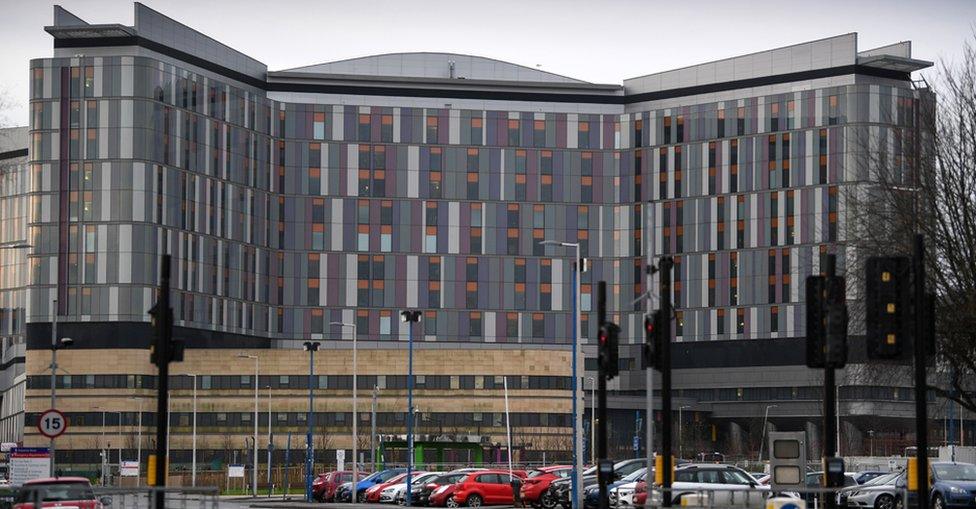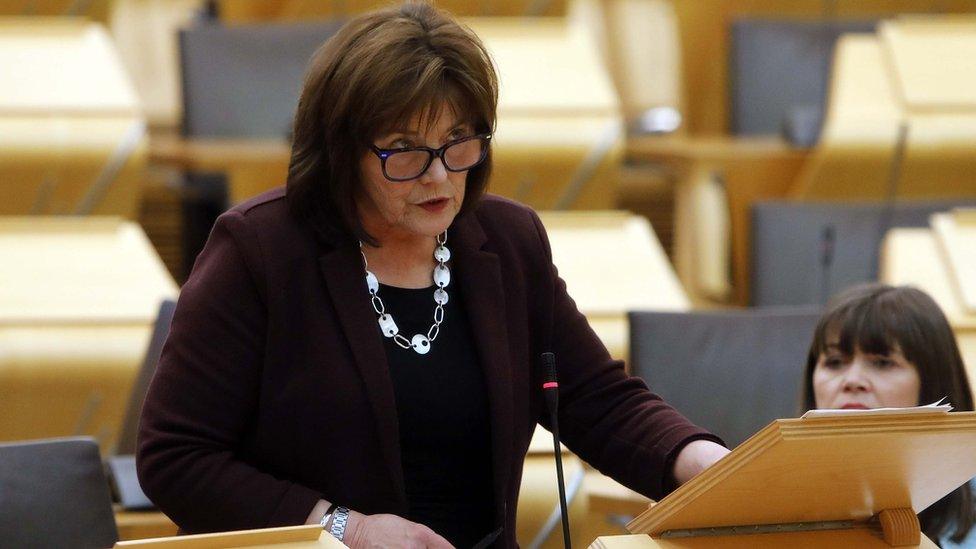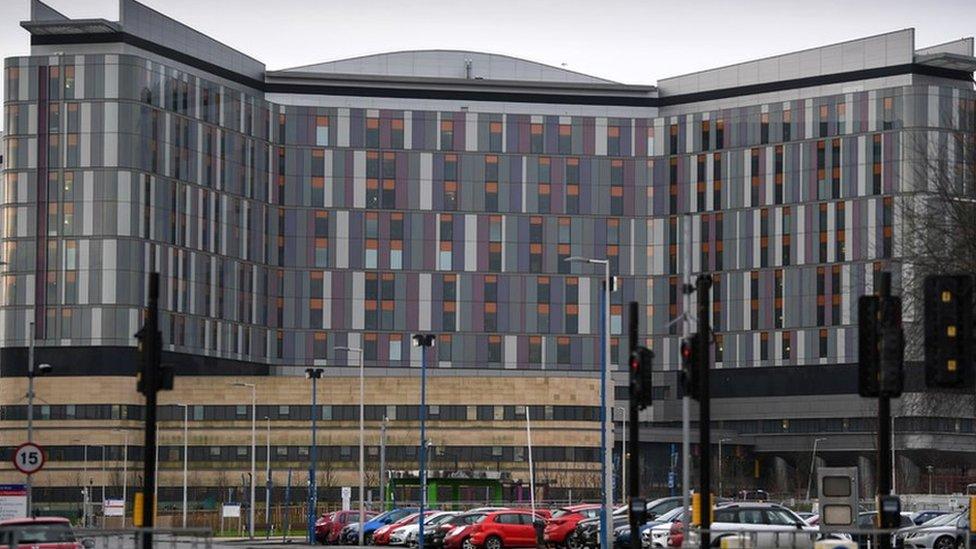Experts to oversee reviews of 80 infection cases at Glasgow hospital
- Published

The Queen Elizabeth University Hospital campus opened in 2015
Two experts have been appointed to oversee a review of around 80 cases of infections at Glasgow's largest hospital complex.
The health board has faced a backlash over its infection control procedures after two children died.
Health Secretary Jeane Freeman also announced two paediatric cancer wards that closed in 2018 would not reopen till this summer at the earliest.
The first group of case reviews are due to begin in February.

Jeane Freeman announced two experts had been appointed in a ministerial statement
Ms Freeman, who recently escalated special measures at NHS Greater Glasgow and Clyde, said she had not ruled out taking the health board to level five.
This means it would be deemed to be "unable to deliver effective care" and would require ministerial intervention.
The health board was partly placed in Stage 4 special measures in November - this was extended across the entire health board on Friday.
In a ministerial statement, Ms Freeman reiterated that families affected should "have their voices heard and their questions answered".
She also said all families would be given a face to face report once the reviews are complete.
The health board's chief executive Jane Grant welcomed the update, agreeing that families should be "at the centre of everything we do".
"We continue to work with Professor Marion Bain in the area of infection control and we welcome the opportunity now to work with Professor Mike Stevens and Gaynor Evans to address these issues and go on to rebuild the confidence of the public," she added.
Lead by Prof Bain, the review will cover infections in the paediatric haemato-oncology ward at the children's hospital since it opened in 2015.
It aims to discover whether children were put at risk because of their environment and whether the measures in place were effective in tackling these risks.
Independent experts Professor Mike Stevens and Gaynor Evans have been asked to prioritise the two fatal cases as well as those currently being treated.
Prof Stevens, of the University of Bristol, has more than 30 years of experience as a consultant paediatric oncologist in the UK.
Ms Evans is a registered nurse and NHS England's clinical lead for a programme to reduce infections across the health service until March 2020.
Three-year-old Mason Djemat, who was being treated for a rare genetic disease at the Royal Hospital for Children, died on 9 August 2017.

Mason Djemat pictured in the Royal Hospital for Children, just hours before he died
Milly Main, 10, died at the same hospital three weeks later while recovering from leukaemia treatment.
Both children were patients on a ward affected by water contamination, with their deaths emerging after Labour MSP Anas Sarwar was contacted by a whistleblower.
Mr Sarwar said the latest move was a "step in the right direction" but the "heart of the problem" had not been dealt with, as he called for those responsible to be removed from their posts.
He said: "Those responsible for creating this mess can't be the ones to fix it. The health board leadership has lost the trust of patients, parents and the public - and those in charge must be removed."
- Published24 January 2020

- Published20 December 2019
